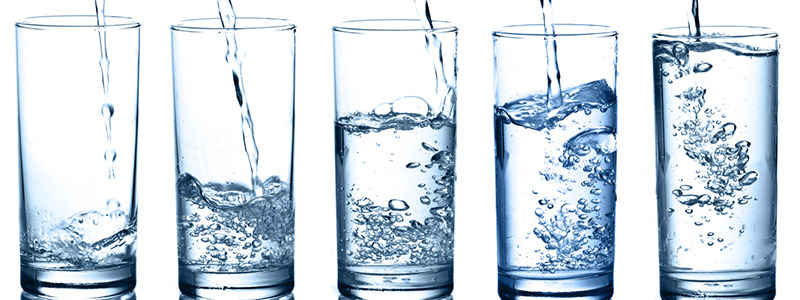This could be the most discussed topic in the field of health – no doubt. Antioxidants fight free radicals and prevent several deadly diseases – they are the Supermen of your system. While some antioxidants are produced within the body, most of them must be obtained from a balanced diet. And that is what the scope of this post will be.
The Pure Hydration Alkaline Antioxidant Water Ionizer natural minerals while filtering and creating high quality Antioxidant water to boost your levels to help you battle free radicals in your body. https://liveright.world/shop/pure-hydration-alkaline-water-ionizer/
How Are Antioxidants Good For You?
As the name states, antioxidants are any substances that inhibit oxidation and fight potentially damaging oxidizing agents inside a living organism. These oxidizing agents, more commonly called free radicals, are molecules produced when our body breaks down food (or when it is exposed to pollution or radiation of any kind).
Antioxidants protect the cells from damage caused by these free radicals. Hence, they are the watchful protectors. They guard our systems, day in and day out. Well, we will get to the details in a while. But before that, let’s take a glimpse at the different foods rich in antioxidants.
What Are The Foods Rich In Antioxidants?
The antioxidant content in any given food is measured by its ORAC score. Called Oxygen Radical Absorbance Capacity, the ORAC score quantifies the total antioxidant capacity of any particular food item. The higher the score, the more the antioxidant capacity. Following are the foods rich in antioxidants – a combination of herbs, fruits, vegetables, drinks, and supplements.
Antioxidant-Rich Fruits
- Elderberries (14,697)
- Wild blueberries (9,621)
- Boiled artichoke (9,416)
- Strawberries (5,938)
- Blackberries (5,905)
- Red grapes (1,837)
Antioxidant-Rich Vegetables
- Cooked Russet potato (4,649)
- Green raw kale (1,770)
- Raw broccoli (1,510)
- Raw spinach (1,513)
Antioxidant-Rich Nuts
- Pecans (17,940)
- Brazil nuts (1,419)
Antioxidant-Rich Legumes And Grains
- Red sorghum grain (14,000)
- Kidney beans (8,606)
- Whole grain bread (1,421)
Antioxidant-Rich Herbs
- Cloves (314,446)
- Cinnamon (267,537)
- Oregano (159,277)
- Turmeric (102,700)
- Cumin (76,800)
- Dried parsley (74,359)
- Basil (67,553)
- Ginger (28,811)
- Dark chocolate (20,816)
What Are The Benefits Of Antioxidants?
Known for fighting free radicals and the resultant inflammation, antioxidants boost heart health and improve cognitive function. They also enhance immunity and boost vision, and their anti-inflammatory properties help ward off chronic ailments like arthritis. Adequate intake of antioxidants can also delay aging and improve hair health.
- Boost Cardiovascular Health
Though not all antioxidants were found to protect against heart disease (this doesn’t mean they would instead cause it), some, like vitamin C, actually do. The nutrient, as per studies, can cut the risk of stroke by as much as 50 percent.
There are hundreds of other studies that state that intake of plant-based diets loaded with fresh fruits and vegetables can protect the heart and prevent cardiovascular issues (1). Fruits and veggies are loaded with antioxidants, and this proves the point.
Did You Know?
Polyunsaturated fats increase the need to consume antioxidants. This is because the more unsaturated a fat is, the more vulnerable it is to the damaging effects of free radicals. Hence, you would need more antioxidants.
- Improves Cognitive Health
Antioxidants were found to improve memory and cut the risk of dementia. Vitamin E is another antioxidant that is known to ward off depression. Antioxidants also maintain your vascular health, thereby repairing neurons and preventing brain damage that is often associated with aging.
Antioxidants work as mediators in the central nervous system, thereby preventing inflammation and boosting cognitive health. Most brain diseases are associated with oxidative damage, which can almost always be reversed with intake of antioxidants. These powerful substances also have a role to play in preventing other ailments like Alzheimer’s disease (2). Greater consumption of carotenoids (another branch of antioxidants) was linked to cognitive benefits in adults (3).
- Aid Arthritis Treatment
One study has found that antioxidant intervention can improve the clinical symptoms of rheumatoid arthritis and offer relief. This can be attributed to the anti-inflammatory properties of antioxidants (4). The Arthritis Foundation also acknowledges the importance of antioxidants in this aspect – the anthocyanins in berries and vitamin C in citrus fruits can combat free radicals that are also responsible for arthritis symptoms (5).
- Can Help Prevent Cancer
Antioxidants prevent free radical damage, which has been found to cause cancer. According to the National Cancer Institute, even dietary antioxidant supplements can aid cancer treatment – given their ability to fight inflammation (6).
Another study states how total antioxidant status can decline during cancer treatment – which means that antioxidant supplementation can help the treatment process (7).
However, we suggest you take your doctor’s advice in this regard – as some studies also state that antioxidants might instead make cancer worse (8).
- Improve Vision
High dose antioxidant vitamins can prevent the progression of and even reverse age-related macular degeneration and other vision issues. Reports by the American Optometric Association state that antioxidant supplements vitamins C and E can reduce cataract progression in less than three years (9).
Other important antioxidants for vision health are lutein and zeaxanthin, which also prevent age-related macular degeneration (10). And then, we have vitamin A that prevents night blindness.
- Enhance Immunity
Consuming more fruits and vegetables is one sure shot way to boost your immunity (11). Antioxidants like vitamins A, C, E, and carotenoids boost immune health.
One report published in the European Journal of Clinical Nutrition says that dietary antioxidant supplementation protects the immune system and contributes to healthy aging (12). They also help treat other issues related to a weak immunity – like cold and cough.
- Might Promote Liver Health
Liver issues usually occur when the organ undergoes severe oxidative stress. And this is where antioxidants come into the picture. They can restore normal liver activity (13).
However, we need more research on this before we can come to any conclusion.
- Can Improve Fertility
Studies are limited here. However, one study states that antioxidants can improve sperm quality and fertility (14).
- Treat Urinary Tract Infection
Studies have shown that urinary tract infection can lead to oxidative stress and depletion of antioxidant enzymes – which is why supplementing with antioxidants can improve the condition (15).
Polyphenols, another class of antioxidants, are known to fight UTI. These compounds help bind iron in the urine, preventing it from fueling bacterial growth.
- Are Good For Kidney Health
Various animal models have shown that antioxidant supplementation can slow down the progression of chronic kidney disease (16). Antioxidants can be particularly beneficial for anyone on dialysis.
- Can Help Bodybuilders
Antioxidants are known to maximize the training effects. They also help deal with the oxidative stress of exercise. And since oxidative stress can also contribute to injuries, taking antioxidants can aid recovery and even accelerate it. Antioxidants, especially vitamin C, can be used in tissue repair – as exercise may cause the formation of free radicals, which can affect the tissues.
- Can Benefit Smokers
As per research, intake of fruits and vegetables can be a protective strategy for smokers (17). Smokers were also observed to have increased oxidative stress and compromised antioxidant activity – which is why taking antioxidants can work wonders.
- Can Treat Acne
Free radicals travel through the body, stealing electrons from healthy cells. This causes damage to the skin, and acne is one of the symptoms. As antioxidants counter these free radicals, they can help treat acne. They also protect the skin by preventing toxins from penetrating the dermal layer.
Vitamin C is one such antioxidant that can fight acne by combating the resultant inflammation. And vitamin E promotes skin cell growth, thereby treating acne scars. Other important antioxidants for treating acne include zinc and selenium.
- Delay Aging
It is the free radicals that cause the signs of aging. They cause cell damage and inflammation and lead to wrinkles and age spots. Since antioxidants counter the effects of free radicals, they can play a major role in delaying the signs of aging.
- Strengthen Hair
Antioxidant supplements can improve hair health and treat any nutritional deficiencies that can harm your hair. And since your hair is regularly exposed to sunlight and pollution, it undergoes degradation. Antioxidants can combat this and prevent hair fall that is also caused by oxidative stress.
These are the various ways antioxidants benefit you. But there arises one important question – how do they work?
How Do Antioxidants Work In Your Body?
How antioxidants work is an important piece of science. If we get into a bit of fundamentals, we know that our human body is made of atoms. And two or more atoms form a molecule. A molecule can only be stable if it has the right number of electrons. If it loses an electron when it shouldn’t, it can turn into a free radical. It becomes unstable and reacts with other molecules and damages them. It can even cause a chain reaction leading other molecules to turn into free radicals, causing havoc in the system.
This is where antioxidants step into the picture. They donate electrons to free radicals, thereby effectively neutralizing them. However, we need a balance between antioxidants and free radicals. When free radicals outnumber antioxidants, it leads to oxidative stress.
April 6, 2018 by Ravi Teja Tadimalla






